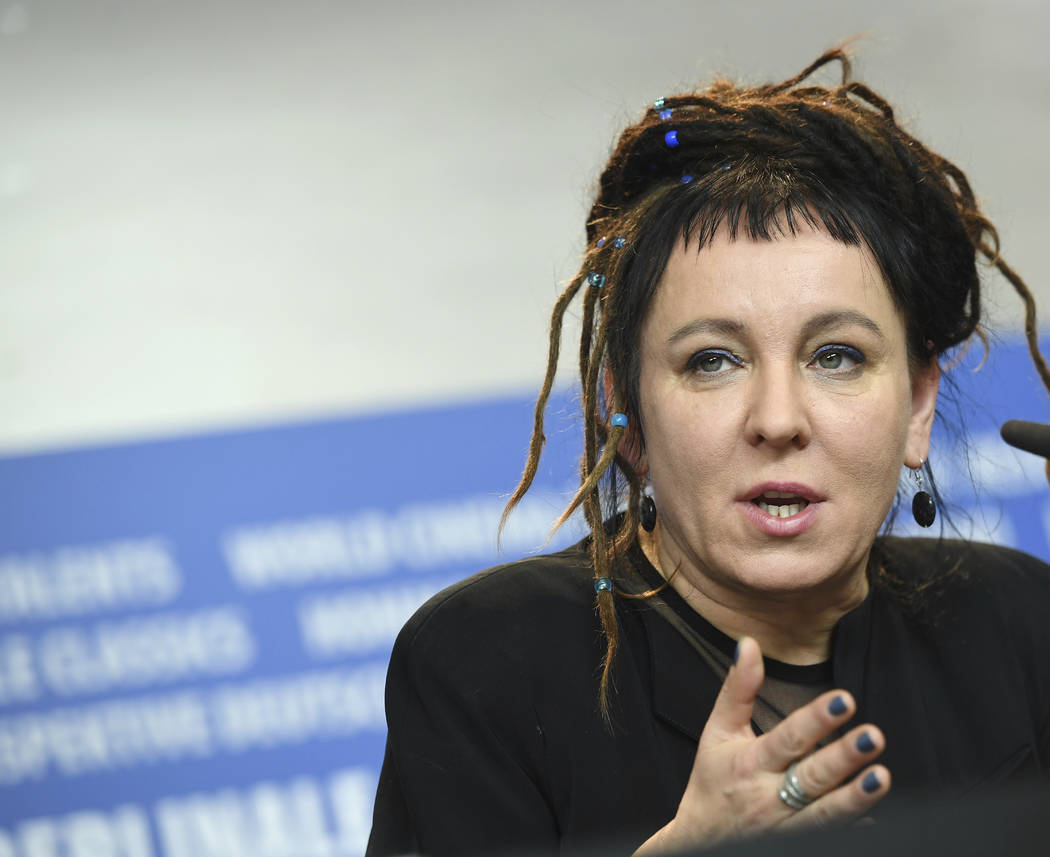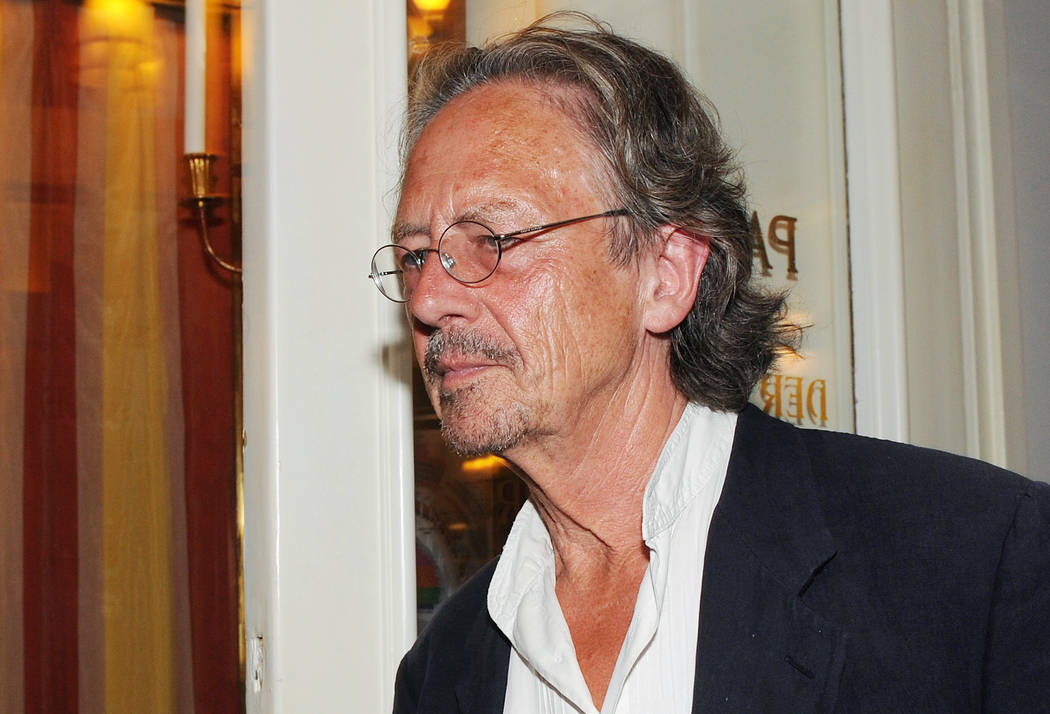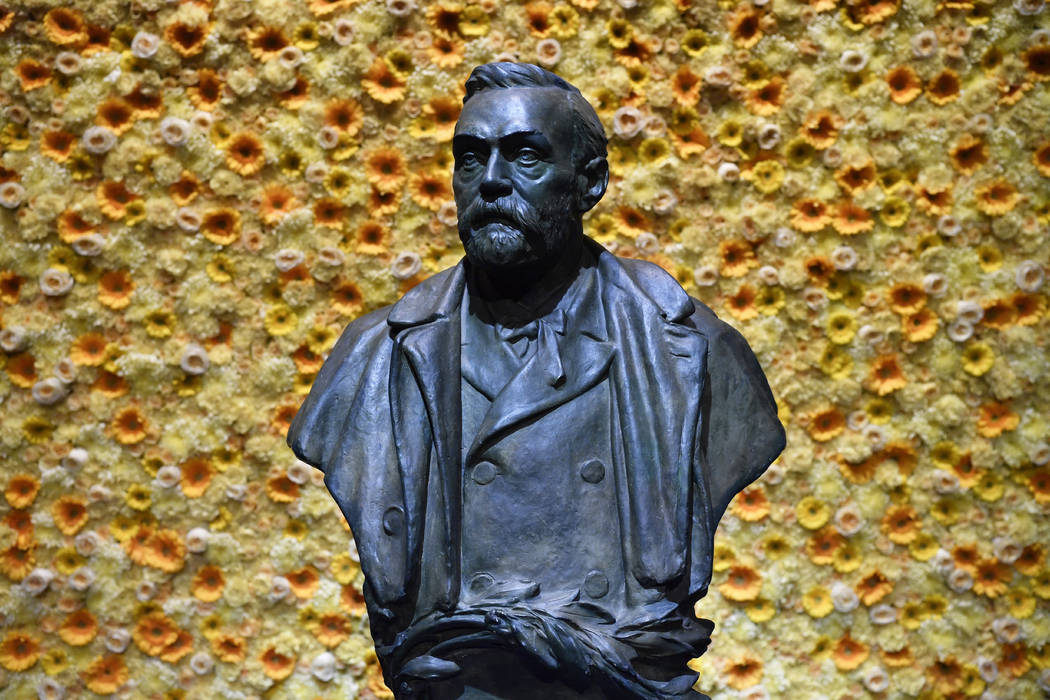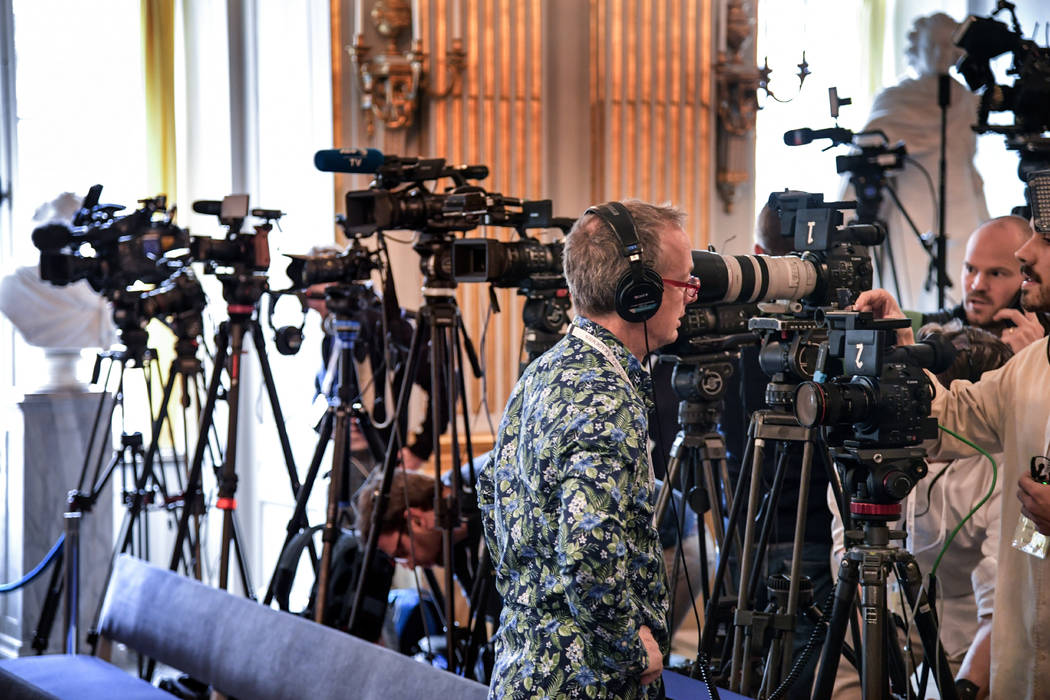Nobel literature prizes go to Polish novelist, Austrian writer
STOCKHOLM — Polish novelist Olga Tokarczuk and Austrian writer Peter Handke won the 2018 and 2019 Nobel Prizes for literature on Thursday, a rare double announcement that came after no prize was announced last year due to sex abuse allegations that tarnished the group awarding the prizes.
The Swedish Academy said Tokarczuk won for works that explore the “crossing of boundaries as a form of life.” Handke’s work was described as exploring “the periphery and the specificity of human experience” with linguistic ingenuity.
Tokarczuk is only the 15th woman to win the Nobel literature prize in more than a century. Of the 11 Nobels awarded so far this week, all the other laureates have been men.
Tokarczuk, 57, is one of Poland’s best-known authors, with a fast-growing reputation in the English-speaking world. She has been criticized by Polish conservatives — and received death threats — for criticizing aspects of the country’s past, including its episodes of anti-Semitism. She is also a strong critic of Poland’s right-wing government.
Her novel “Flights,” which won the Booker International Prize in 2018, combines tales of modern-day travel with the story of a 17th-century anatomist who dissected his own amputated leg and the journey of composer Frederic Chopin’s heart from Paris to Warsaw after his death.
Congrats via tweet
Poland’s Culture Minister Piotr Glinski, who said earlier this week has not finished any of Tokarczuk’s books, tweeted his congratulations to her and said he now felt obliged to go back and read her books all the way through.
Handke, 76, is a novelist, essayist, playwright and screenwriter described by the academy as “one of the most influential writers in Europe” after World War II. He was praised for writing powerfully about catastrophe, notably in “A Sorrow Beyond Dreams,” his 1975 novel about his mother’s suicide.
The literature prize was canceled last year after an exodus at the exclusive Swedish Academy, which chooses the winners, following sex abuse allegations. Jean-Claude Arnault, the husband of a former academy member, was convicted last year of two rapes in 2011. Arnault allegedly also leaked the name of Nobel Prize literature winners seven times.
The Nobel Foundation had warned that another group could be picked to award the prize if the academy didn’t improve its tarnished image, but said in March it was satisfied the Swedish Academy had revamped itself and restored trust.
The 2018 and 2019 awards were chosen by the Swedish Academy’s Nobel Committee, a new body made up of four academy members and five “external specialists.” Nobel organizers say the committee suggests two names which then must be approved by the Swedish Academy. It’s unclear whether the academy members simply rubber-stamped the experts’ choice.
Anders Olsson, chair of the Swedish Academy’s Nobel Committee, said “we are not ready to evaluable this new process yet.”
In his will, Swedish industrialist and dynamite inventor Alfred Nobel specifically designated the Swedish Academy as the institution responsible for the Nobel Prize in literature. Nobel decided the physics, chemistry and medicine should be awarded in Stockholm, and the peace prize in Oslo.
Nobel Peace Prize awarded Friday
The coveted Nobel Peace Prize set to be awarded on Friday and the economics award on Monday.
Wednesday’s chemistry prize went to John B. Goodenough, a German-born engineering professor at the University of Texas; M. Stanley Whittingham, a British-American chemistry professor at the State University of New York at Binghamton; and Japan’s Akira Yoshino, of Asahi Kasei Corporation and Meijo University.
On Tuesday, Canadian-born James Peebles, 84, an emeritus professor at Princeton University, won the physics prize for his theoretical discoveries in cosmology together with Swiss scientists Michel Mayor, 77, and Didier Queloz, 53, both of the University of Geneva. The latter were honored for finding an exoplanet — a planet outside our solar system — that orbits a solar-type star.
A day earlier, two Americans and one British scientist — Drs. William G. Kaelin Jr. of Harvard Medical School and the Dana-Farber Cancer Institute, Gregg L. Semenza of Johns Hopkins University and Peter J. Ratcliffe of Britain’s Francis Crick Institute and Oxford University — won the prize for advances in physiology or medicine. They were cited for their discoveries of “how cells sense and adapt to oxygen availability.”
With the glory comes a 9-million kronor ($918,000) cash award, a gold medal and a diploma. The laureates receive them at an elegant ceremony on Dec. 10 — the anniversary of Nobel’s death in 1896 — in Stockholm and in Oslo.





















